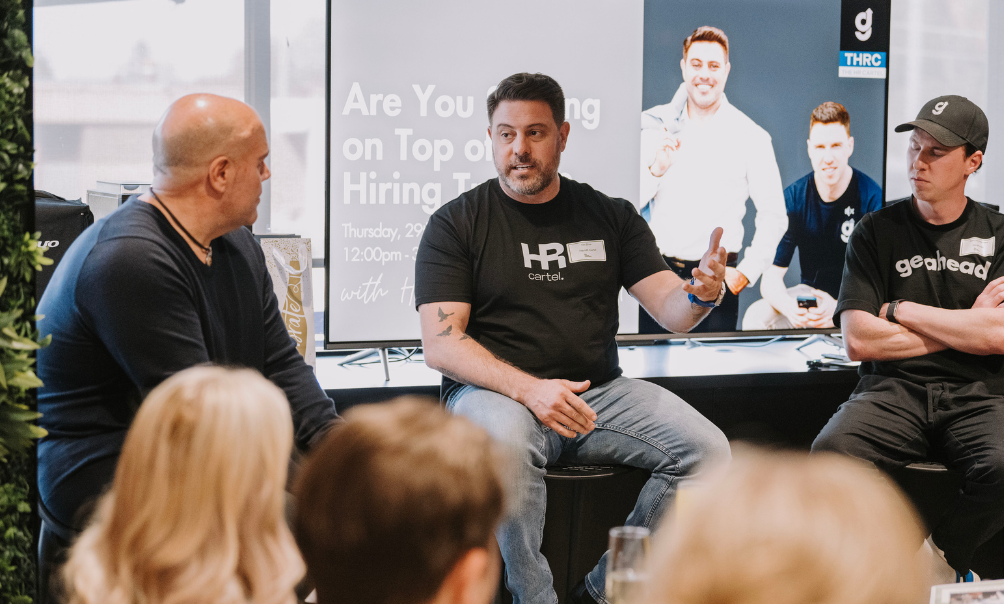
On Monday 1 April, 2024, Fair Work Ombudsman (Anna Booth) featured in a story published by the Australian Institute of Company Directors (AICD), where she provided her position (and the office of the Fair Work Ombudsman by proxy) on regulation and criminal punishments for employers in Australia.
The office of the Fair Work Ombudsman is now gearing itself to incorporate a criminal management stream of work, where it intends to establish direct lines into the office for the Commonwealth Director of Public Prosecutions and the Australian Federal Police.
This is for referring employers for criminal prosecution, including being locked behind bars. Notwithstanding, the Fair Work Ombudsman seemingly attempts to maintain the position that it is not ‘against’ Australian employers.
The AICD article referred to Booth as an ex “trailblazing union leader” who also served as the Vice President of the ACTU. Booth, who held the position of Vice President in the Fair Work Commission is also touted as leading programs aimed at “mending the fractious relationships” between unions and employers (while working within the Fair Work Commission).
Suffice to say, Anna Booth is at least sympathetic to the idea of advancing the union movement, which is confirmed by reading the Ombudsman’s Statement of Intent – in response to requests from Minister Tony Burke to do precisely what Booth has confirmed her intent to be.
Click here to read the Fair Work Ombudsman’s SoI.
Am I suggesting Anna Booth does not have sympathy for the employer-side? Not specifically.
However, the AICD write-up is quoted as stating Booth “never bought the long-held argument that the cause of so many under-payment mistakes is a workplace relations and awards system that’s too complex to navigate”
Booth, herself is quoted as stating: “Our internal enforcement board papers come across my desk, I have full visibility of the mistakes being made, and they are not of complex things.”
Booth is claimed by AICD to have offered examples of record- keeping failures and employers reneging on reconciling individual flexibility agreements with awards and is quoted as further stating: “They (employers) didn’t get it wrong; they just didn’t do it”.
One question I’d like to ask the new Ombudsman is, if payroll errors employers make are not due to complexity of a workplace relations system so difficult to comprehend for business owners, why is it that your very own office of ‘experts’ hasn’t been able to answer a simple question regarding the meaning of a clause in a Modern Award since 6 December 2022.

The screenshot shown is taken from the FWO’s account enquiry page – where conflicting advice and incorrect
or irreconcilable interpretations were provided by the Ombudsman’s office over the same enquiry 5 times, only to leave the 6th attempt open and “in progress” now for fifteen (15) months, with no direction.
That’s 15 months where an employer’s honest attempts to interpret an Award clause may be incorrect, resulting in the type of underpayments Booth is suggesting is nothing more than employers being lazy.
If the Ombudsman is bold enough to make such criticisms of Australian employers, it ought to learn how to make its own bed before hurling stones over the fence.
If the Ombudsman itself is often wrong (a frequent criticism of the office by Australian employers), and continues to employ unsuitably qualified ‘experts’ to sit in call centre’s erroneously advising desperate employers, what morality is there in this office referring employers to serve time in jail for making the same mistakes?
The point to make here, is regardless of the Ombudsman’s characterisation of underpayment issues, an almost entire legal profession, HR profession, and swathe of business leaders and owners vehemently disagree with the claim the IR system is not overly complicated and difficult to comply with.
Volumes of groups representing employers, as peak bodies, spokespeople, litigators, and Directors consistently and regularly highlight how the IR system’s current complexity carries the risk of penalising well- intended employers.
The Business Council of Australia has submitted to the Fair Work Commission that interpreting and applying pay terms and conditions in Modern Awards is in fact a “highly specialised undertaking”. Quoted as stating, “too often this complexity results in errors where those responsible for their application unintentionally misapply the correct requirements, despite their best endeavours.”
Perhaps most alarming is the fact the Fair Work Ombudsman team lack the capability to understand and appropriately advise on matters of Award interpretations, which results in employers not complying with their obligations.
When we hit January 2025 – this has the potential to impact employers enormously, facing up to 10 years in jail. Can we stop and comprehend that for a moment?
There is little to no assurance being provided to employers that the FWO intends to focus on the accuracy of their advice, yet it is already commencing plans and creating processes to turn Fair Work enquiries into potential criminal matters. Matters that may put Directors and business leaders in jail for “intentional underpayments” – at least some likely arising from, or at least having roots embedded in originally erroneous interpretations of Modern Award terms.
All this aside – smaller businesses, typically famous for not paying much attention to the brewing storm clouds of Industrial Relations risks, must pull their heads out of the sand and realise the future of ‘employment’ in Australia is forcing them to evolve, whether they like it or not.
By evolve, I mean start taking HR seriously, and get yourself supported by a HR service model that suits your business.
“By the end of her five-year term, Booth hopes to have stemmed the king tide of self-reports and improved workplace standards across the sectors. In her eyes, the FWO is a key player in Australia’s future, as workers and management co-design productive organisations.”
Pay attention to those words in BOLD.
This is the Ombudsman’s commitment to the IR Minister, Tony Burke, in creating “tripartism” which essentially means unions equally designing and controlling workplaces, with employers and governments.
Quoting Anna Booth when asked what her top 5 questions for company directors are, she stated question number 2, as:
Who in our company has regular interactions with workforce representatives? Whether it’s a union or consultative committee representative, that person should be seen and heard at a board level.

